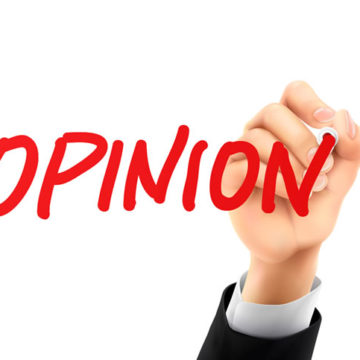
THE story of my journey to humanism will not be complete without referencing the British Broadcasting Corporation (BBC), and its programme, Pause for Thought. Pause for Thought was part of its world service programmes in the 90s. Decades ago, I was an ardent radio listener, and every day, I devoted hours listening to various radio stations like the Voice of America, Radio France International, Deutsche Welle, Africa Numero 1, and, of course, the BBC. I listened to these stations in my quest for self-discovery, and to understand what was happening in the world. The BBC had this program called Pause for Thought. I liked it. The programme aired at a quarter to ten every morning. It provided a platform for persons from faith and no-faith traditions to reflect and share their thoughts on issues. There were reflections from Christian, Jewish, interfaith, and humanist/rationalist leaders. Humanists used to feature on Thursdays, and I looked forward to listening to their reflections because I could relate to their views and perspectives. I could connect to their sense of reality and existential meaning. After listening to some episodes, I decided to start the humanist movement in Nigeria. How I went about it was interesting.
I did not know how to contact these humanist individuals directly. I did not have their addresses. I was struggling financially and did not want to spend the little I had writing letters to some unknown humanists overseas, who would likely not reply. I sent a letter requesting more information about the humanist movement via the BBC office in Lagos. I addressed it to the Humanist Reflector, Pause for Thought, BBC World Service. I thought I would not get any reply. But I did. One day, I went to the post office, and there was a mail from Nicolas Walter of the Rationalist Press Association. The package contained information materials on the humanist movement. One of the flyers in the package had this title, The Humanist Movement. It was blue. I agreed with everything written therein. I removed the article, The, and added Nigerian. That was how I came about the Nigerian Humanist Movement. I am recounting this story to stress how important the BBC and its World Service program, Pause for Thought, were to my journey to humanism and the formation and foundation of the humanist movement in Nigeria.

Read Also: Insecurity: FCT minister, Police commissioner meet senators
It was while listening to that programme that I became convinced of my thoughts, outlook, and identity as a humanist. I was able to connect with like-minded individuals and organisations. Humanists who featured in that program included Nicolas Walter, Jim Herrick, and Jayne Wilson. I never met Nicolas Walter. But I had the opportunity of meeting Jim Herrick, who passed away last year, and Jayne Wilson, who hosted me in her house some years ago. Now, imagine this morning reading this post on the Facebook page of the Humanists UK: “We’ve been asking the BBC for years to just occasionally include a humanist on ‘Thought for the Day’. And the answer always comes back: ‘Why don’t you just leave that bit for the religious? You get the rest of the show, the rest of the show is non-religious…’. The BBC programme, Pause for Thought, inspired me to come out as a humanist and to start the humanist movement in Nigeria. So I was surprised and disappointed to read this. I was surprised that the BBC excluded humanists from the Thought for the Day in the UK. I read about this issue many years ago. I thought reason had prevailed, that the matter had been resolved.
Unfortunately, it has not. I was disappointed that the BBC had allowed this issue to linger. This programme is not ‘Prayer for the Day’. Is it? Humanists are not asking the BBC to include them in its ‘Divine Revelation for the Day’ if there was anything like that. The programme, Thought for the Day, is an invitation to share one’s thoughts and ideas. So why should humanists be excluded? Which belief group does this programme fit more than humanists? Which belief demographic does this programme speak to and should include better than humanists and nonreligious persons? As the post rightly noted: “The rest of the (BBC) show is for everybody, and nowhere does it speak to what the majority of people believe. According to the most reliable data, 53 per cent of British adults are non-religious, and those people do have beliefs, convictions, and a way of seeing reality, the world, the universe… and their place in it, and how they bring meaning to their lives.
Wouldn’t it be wonderful to explore those ideas? To take a look at the humanist approach to life? We think it would resonate deeply with the majority of the country!” I hope the BBC is listening.
- Igwe, founder of the Nigerian Humanist Movement, now the Humanist Association of Nigeria, is a board member of Humanists International.








